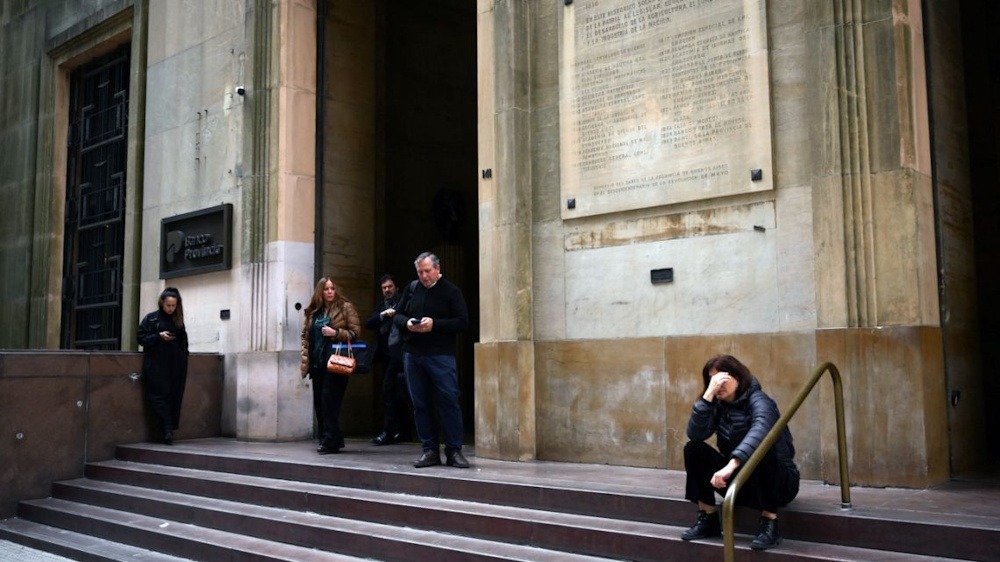Argentina’s dollar bonds are rebounding from a week-long decline following President Javier Milei’s more conciliatory approach during the unveiling of next year’s budget, igniting optimism for potential support ahead of the upcoming midterm elections next month. Sovereign notes experienced an upward movement across the curve, with the 2035 maturities appreciating by over a cent to trade above 54 cents on the dollar. In the interim, the currency paused its six-day decline, remaining relatively stable just a few pesos shy of the lower threshold of its trading range.
Milei informed lawmakers of his intention to boost funding for health care, education, and pensions in 2026, all while maintaining his commitment to a fiscal surplus. He extended a conciliatory gesture to provincial governors, whose backing would enhance his performance in the upcoming vote on October 26. The libertarian president must secure additional seats in Congress to ensure his economic overhaul plan remains on course. “Milei’s address marked a first step toward moderation, aimed at building consensus with governors and preventing further erosion of support among swing voters affected by weak economic activity and fiscal austerity,” stated Juan Sola. Milei’s address offered a brief reprieve for the nation’s assets, which had suffered significant declines after the government’s disappointing performance in a local election in Buenos Aires Province on September 7. The sovereign bonds reached their lowest point in nearly a year, as the currency appeared poised to breach its trading band.
The “move toward the centre” in Milei’s speech may serve to consolidate support against the Peronist opposition, while also bolstering credibility, according to Trevor Yates. “This more balanced strategy leaves us cautiously optimistic heading into the mid-terms, as Milei could gain support from a broader coalition,” he stated. Nevertheless, with economic growth stagnating after a surge in interest rates and the peso poised to depreciate, potentially reigniting inflation, Milei faces significant challenges ahead. “Expanding certain expenditures while potentially facing lower revenue than anticipated presents a challenging scenario, especially in light of the uncertainty surrounding the midterms,” stated Brendan McKenna. “While current prices may appear more appealing, the potential downside remains significant if Milei’s party fails to meet expectations once more in October.”
Manuel Adorni, emphasized the importance of introspection during a press conference on Tuesday. “It is evident that there exists a segment of Buenos Aires Province to whom we failed to convey our actions, the current phase we are experiencing, and our future direction,” he stated. In the face of political upheaval, the administration has intensified its measures to maintain the peso within its designated trading range, established as a component of a US$20-billion agreement with the International Monetary Fund. The Central Bank has broadened the sales of dollar futures contracts within the local market, while the securities commission on Friday took steps to curb dollar demand from brokers by reinterpreting a pre-existing regulation. This week, Argentina’s local exchange granted permission to the Central Bank to sell as much as US$6 billion in dollar futures, as reported by sources familiar with the situation. The announcement was conveyed to market participants through email.
While BYMA serves as the primary stock exchange in the country, the majority of futures trading occurs in the A3 market, which specializes in derivatives, fixed income, foreign exchange, and commodities. The Central Bank presently maintains an open interest limit of US$9 billion in the A3 market, in which it already possesses approximately US$6 billion in positions.

